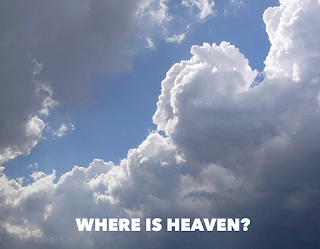I have a few confessions to make...Yep; I am going to come clean on a few things that you should know about me. Okay, so here it goes... First, you should know that I have not watched even one episode of the TV series Game of Thrones. Secondly, I have no idea what the craze is about the Pokémon Go game, and lastly, of the original Star Wars trilogy that started in 1977, I have only seen The Return of the Jedi. So, there it is, I already feel better just sharing this with you.
However, even though I have not immersed myself in this epic pop culture, what is clear to me is that the adventures of various characters "a long time ago in a galaxy far, far away" has gripped the imagination of our culture across many generations. It is like everyone gets it when you say “The Force be with you.” I can see how people can get hooked on this epic phenomenon called Star Wars. It’s about illuminated swords clashing in an epic showdown between the forces of light and darkness. It is as if stories of the battle between the forces of good and evil wants to win our loyalties to the side of good and to alienate us from evil. Somehow we know that that is the way it is suppose to be...
We see this same phenomenon in the Roman culture during the days that John received the Revelation. It was Greek tales of good and evil that gripped the imagination of the people of that day. In one such epic story, as shared by Koester,
“The antagonist was a fierce dragon named Python and the protagonist was a woman named Leto, who was the mother of the god Apollo. When Leto became pregnant by the god Zeus, the dragon pursued her in order to kill her and her child. The north wind rescued Leto by carrying her away, so that she eventually found refuge on the island of Delos, which lay in the Aegean Sea. There the woman gave birth to Apollo and Artemis. Four days later, Apollo set off in pursuit of the dragon, soon slaying the creature to avenge his mother.”This story had such a powerful impact that the Roman emperors were able to put the tale to good use by associating themselves with Apollo, whose defeat of the evil dragon was said to have ushered in an age of peace and prosperity in the Roman Empire. Citizens of the empire could be expected to identify the woman in the story with the goddess Roma, who was the queen of heaven. Her son would be the Roman emperor, who overcame the forces of evil and chaos so that light and peace could flood the world.
So, when John tells about a pregnant woman and a dragon in Revelation 12, Christians in the seven churches would have heard echoes of the familiar story of Leto. What is fascinating, however, is that John's version reverses the usual implications of the tale, so that in his version the woman in labor is not a pagan goddess, but the people of God; the child is not the emperor but Christ; and the dragon represents the forces that oppose Christ and threaten his church. In the end, a story that was used to celebrate the popular culture is now transformed by John to tell a powerful story of the battle in Heaven between the dragon and Michael, the archangel. Michael takes on the dragon, (who now is identified as Satan), and the next thing you know, Satan is cast out of heaven. This defeat dramatically limits the area in which Satan can operate. Instead of being able to work in heaven, denouncing the saints before God (Rev. 12:10), Satan is banished from heaven so that he must restrict his operations to the earth.
This brings a powerful encouragement to those who heard this message from John for the first time and for us as well. In short succession, let me highlight a few very encouraging points from this fascinating depiction of the limitations of the power of evil:
- In the end, it is the saints that have a safe place under the throne of God, but Satan lost his place. This means that evil has no place in heaven.
- It was Christ’s death, resurrection and exaltation that caused Satan to be cast from Heaven to earth. It is the slaughtered Lamb who ends up on the throne, not Satan. And this, my friends, is not a Game of Thrones, it is the real deal.
- What we should know is that Satan rages here on earth like a trapped animal, since he has already lost Heaven. This should encourage us to resist him in the name of Jesus.
- The serpent who tempted Adam and Eve in Gen 3, who accused Job in the throne room of heaven, who tempted Jesus in the wilderness and goes around like a roaring Lion is defeated. He is on a leash for just a short time.
By the way, this is not a George Lucas production!
Come be a part of COMMUNITY
- Join Us For Worship - Join us Sunday mornings at 8:30 or 10:45 as we continue our journey into the fascinating book of Revelation.
- Watch Live Online - Can't be with us in person? Be a part of COMMUNITYonline and join our live webcast Sunday mornings at 10:45. Click here.
- Watch Past Sermons - Missed this week's sermon? You can watch it here.
- Wednesday Evening Q&A - Join us Wednesday nights at 6:30 in the Gallery for a deeper look at Revelation
- Ask Pastor Tredoux a Question - Submit questions to Pastor Tredoux here.



